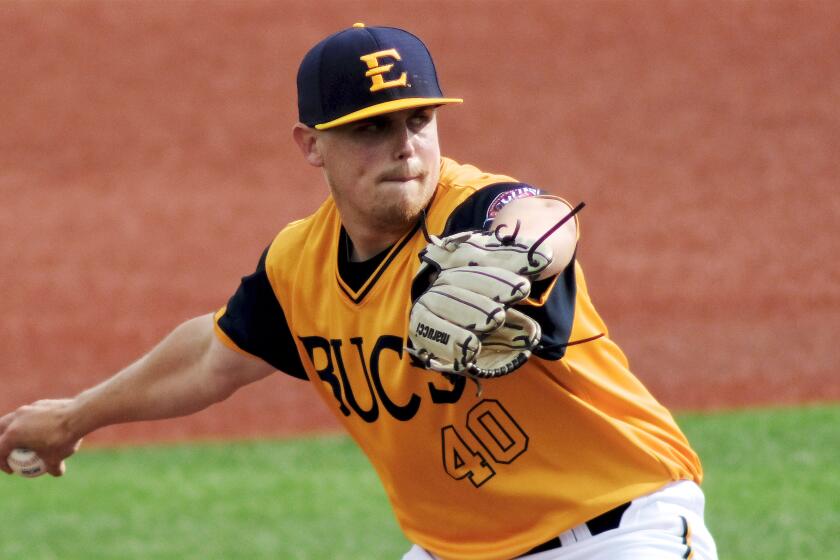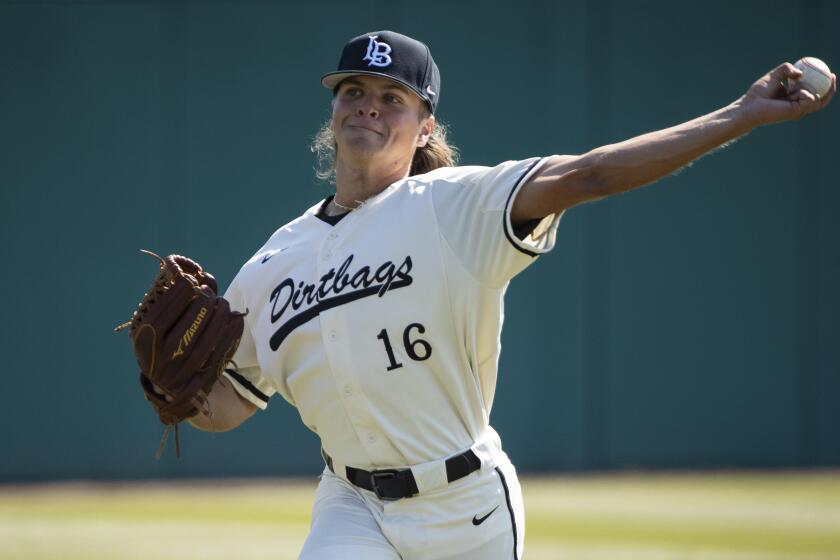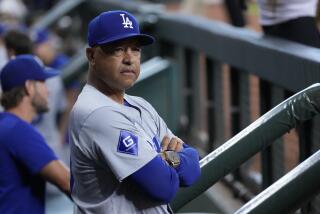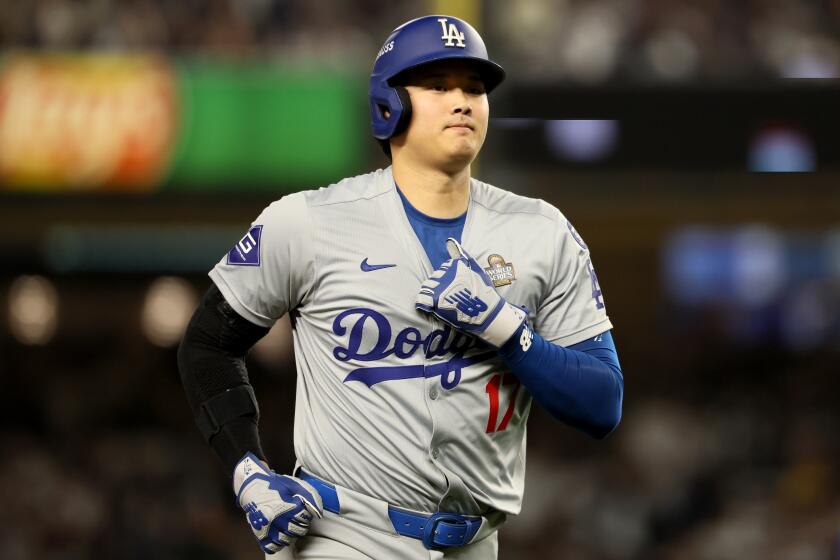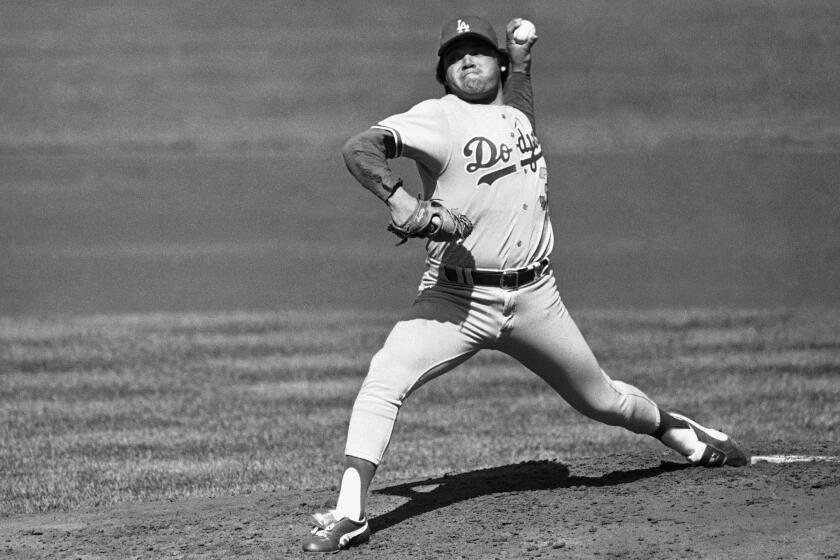Convincing talented undrafted free agents to sign won’t be easy for Dodgers, Angels
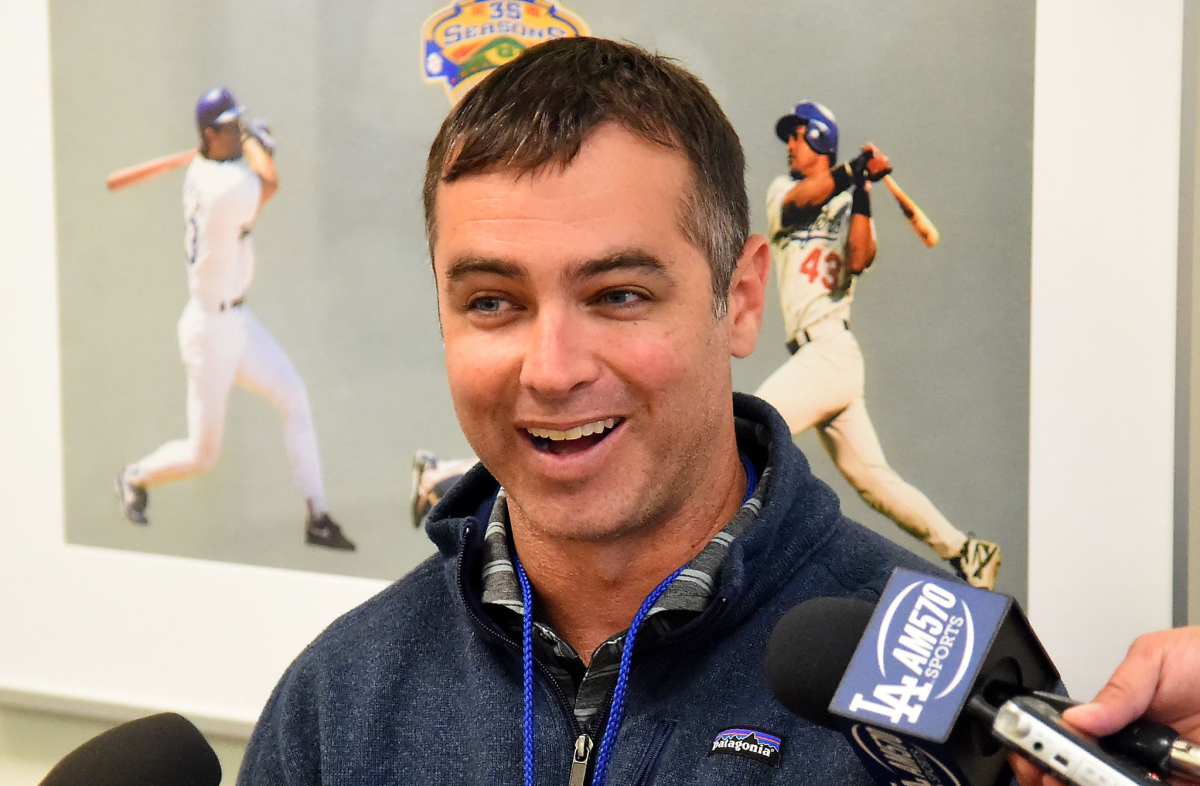
Its coronavirus-truncated, five-round draft complete, Major League Baseball now turns to what one agent calls the “wild, wild West” phase of player acquisition, a free agent free-for-all in which teams will be allowed to sign unlimited undrafted players for a maximum of $20,000 each.
“We’re going to turn over every stone,” Dodgers scouting director Billy Gasparino said. “I haven’t seen the final version of our recruiting video, but we’re going to pull out all the stops. Maybe Magic Johnson will call a few people, Dave Roberts. Whatever you can think of that’s legal in the recruiting world, we’re going to try.”
There was more than a hint of hyperbole in Gasparino’s sales pitch. The Dodgers, Angels and the 28 other teams cast a wide net for talent beginning Sunday at 6 a.m. PDT, when they started contacting players who didn’t opt out of the draft pool, but those efforts are not expected to yield much.
The Dodgers signed one player Sunday, right-handed pitcher Robbie Peto, a 6-foot-4, 224-pound junior from Stetson University. Peto was 3-0 with a 1.78 earned-run average this year, striking out 41 batters in 25-1/3 innings before the season was shut down.
With signing bonuses limited to $20,000, teams will essentially be shopping at the dollar store, their targets likely limited to college seniors projected as low-round picks, junior college and prep players who have little interest in remaining in school and players who wouldn’t command much more than $20,000 in any draft.
The Dodgers landed a pair of right-handed pitchers in the second round of the MLB draft, selecting right-handers Landon Knack and Clayton Beeter.
“I think the idea of a frenzy is a little bit more theoretical because the bonuses are capped,” Angels general manager Billy Eppler said. “I would definitely agree with it being a frenzy if bonuses were higher or unlimited. I think there will be some activity, but just how much still needs to be seen.”
When Major League Baseball scaled back its draft from 40 rounds to five — a cost-cutting move that reduced the number of players selected from about 1,200 to 160 — it sent a clear message to the 2020 draft class: We don’t want you this year.
Prospects who would have been picked in the sixth through 30th rounds or so will have little financial incentive to sign. Slot values for picks in the sixth through 10th rounds in 2019 ranged from $301,600 down to $142,000.
Six-figure bonuses were sprinkled throughout the rest of the draft, one as low as the 33rd round. That track record will push more high school standouts this year to two- and four-year schools.
The NCAA also granted an extra year of eligibility to spring sports athletes after their seasons were cut short by the COVID-19 pandemic, meaning many top undrafted college and junior college players will remain in school and try their luck in a hopefully more lucrative 2021 draft, which will feature 20 rounds under current plans.
And for those prospects inclined to sign, where would they play this summer? Minor league seasons are expected to be canceled because of the coronavirus.
“Players will have a number of things to weigh, like the extra eligibility they’ve been granted by the NCAA, and kind of forecast what their immediate outlook is,” Eppler said.
On the second and last day of the 2020 MLB draft, the Angels added three players, including Adam Seminaris, a left-hander from Long Beach State.
“If they think they can do better than the signing bonuses we can offer, then I think a number of them will return to school. But everybody’s circumstances are different. We’ll see how things develop.”
Gasparino believes there could be some advantages for higher-end prospects to sign now.
“You’d be coming in with a smaller draft class, so if you’re one of 10 to 12 guys we sign instead of 30, that helps your cause,” he said. “And I think our track record of development and success with later-round picks is going to help us.
“I just don’t have a real good grasp of how enticing $20,000 is. It won’t be for everyone, and it might not be for many.”
The lure of training in top-notch facilities with a professional player development staff — along with the chance, perhaps, to sign with a favorite team — will only go so far. Teams may include college tuition in their offers, but are prohibited from offering other inducements such as an invitation to major league spring training or promising additional money later.
“We can offer the college tuition program,” Gasparino said. “No set amount or limit but it has to be within reason of the current school the player attends or is committed to.”
Players who opt in to this year’s draft class will have until they return to school or seven days prior to next year’s draft to sign. With no games to offer, teams will be looking for prospects who can clearly upgrade their systems.
“There’s a line of talent they’re going to have to achieve for us to sign guys,” Gasparino said. “We’re not just going to randomly sign guys. There’s no real need.”
With so many top prospects remaining in school, one draft’s loss could be another’s gain.
“I think the talent in next year’s draft is going to be absurd,” Gasparino said. “That gives us a little more comfort knowing that if we can’t sign a top-three player [this year], we get a [compensation] pick in a super strong class next year.”
More to Read
Are you a true-blue fan?
Get our Dodgers Dugout newsletter for insights, news and much more.
You may occasionally receive promotional content from the Los Angeles Times.

